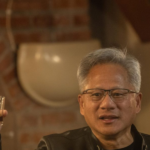Bushnell first witnessed Jobs’ potential as a businessman in the 1970s, when the college dropout joined Atari as a technician and games designer before moving into entrepreneurship.
But years later, the tech pioneer isn’t quietly simmering over his choice to reject the offer.
“I could have owned a third of Apple computer for $50,000, and I turned it down,” Bushnell said in the interview. “I’ve got a wonderful family, I’ve got a great wife, my life is wonderful. I’m not sure that if I had been uber, uber, uber rich that I’d have had all of that.”
In fact, Bushnell even thinks Apple may not have been so successful if he had taken the deal. And his potential payout may not have soared to that trillion-dollar height.
Bushnell isn’t the only one who missed out on critical business opportunities that would launch them into billionaire status—there are even others who blew it on big deals with Apple.
Ronald Wayne, the lesser-known third Apple cofounder, was also working at the electronics company Atari when he stepped up as Jobs’ friend to help convince Wozniak of formalizing Apple’s launch. Wayne even typed up the contract, penning that he would receive a 10% share in the tech company, while Jobs and Wozniak would each be awarded a 45% stake.
Today, YouTube is valued at $550 billion—333 times higher than its market cap from nearly two decades prior, adjusted to inflation. If Hurley and Chen accepted the same stock deal today that they did in 2006, each could have more than $100 billion in their bank accounts.









